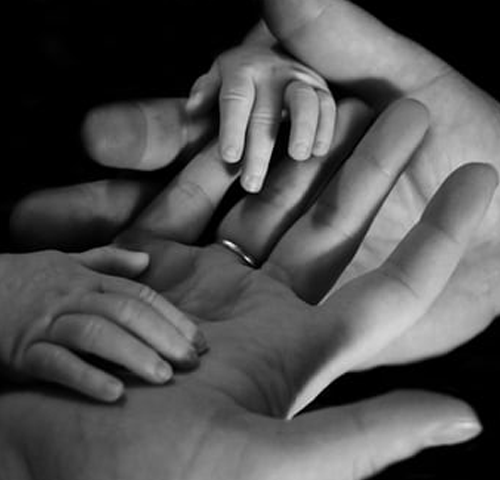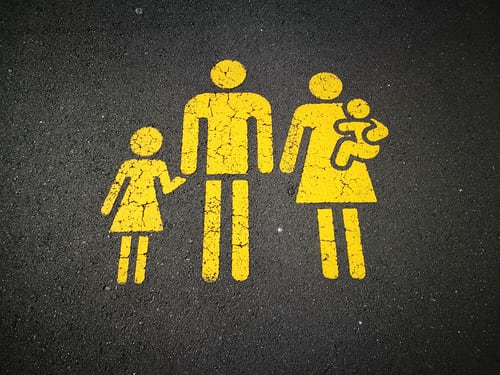Domestic and family violence is a significant health and wellbeing issue in Australia. It affects people across all ages, socioeconomic and demographic groups, although research shows that predominantly women and children are victims of the violence. One in six women have experienced physical and/or sexual violence by a partner by the age of 15. Although there are limited statistics, it is thought that as many as one in three men also experience violence and abuse in their relationships.
Domestic violence refers to violent behaviour between intimate partners. It can present in many forms, such as physical injury, intimidation or harassment or damage to property, and can occur in a current or separated relationship. The person that is projecting the violent behaviour is normally trying to control the other person through fear.
Family violence refers to a broader range of violent acts where a person tries to control and dominate another family member. This encompasses mothers or fathers, siblings and family members not necessarily living under the same roof. It is rarely an isolated event, and the violence tends to increase in frequency and severity over time.
It’s important to be familiar with the signs of family and/or domestic violence as often people can become so desensitised to the abuse, they don’t recognise the effects or may consider it to be normal due to longer periods of exposure.
Below is a list of behaviours that are considered abuse:
Physical Abuse
Punching, Kicking, Choking, Pinching, pulling hair, Restraining, grabbing excessively tight (any contact that would leave a mark). It is common for abusers to cause their injuries to areas of the body that can be easily covered up or in a more private area.
Restricting access to food or medication and depriving you of sleep can also be considered abuse.
Verbal Abuse
Yelling or screaming at you, calling you names, threatening to physically harm you, your children or pets, telling you that you are worthless or name-calling, degrading you in front of others or your children, insults and attempted humiliation.
In any relationship, it is normal to have disagreements from time to time, which may escalate into an argument. Below are a few points to differentiate between the two.
Normal arguments:
• Don’t resort to name-calling or derogatory comments
• Don’t happen regularly
• Allow both parties to have an opinion
• Are about a specific issue not about personal degradation
Red Flags:
- Arguments about the same thing with no behavioural changes
- Constant arguments
- A clear difference between how you are spoken to in private vs public
- Controlling/abusive behaviour during the argument e.g., hitting things, holding weapons while arguing, standing in doorways to restrict your escape of the argument or getting right up in your personal space.
- Always blaming you for everything including the argument, telling you that you are oversensitive or can’t take a joke.
- Telling you what everyone else thinks of you or that no one likes you.
- Constantly bringing things up that they do for you, to manipulate you into feeling like you owe them something
Financial abuse
Financial abuse can come in many forms and is another form of abuse of power that is used to control another person. It is used in a family violence scenario to control their victims and their ability to leave the relationship. One of the biggest factors for women to return to an abusive partner is financial insecurity.
Red flags:
- Denying access to bank account passwords
- Withholding child support
- Spending excessively themselves and restricting your use
- Telling you they earn most of the money so they control it and can spend more than you
- Using your assets for their gain
- Running up large bills on your or joint credit cards
- Promising to pay bills on your behalf with your money and not following through.
- Borrowing money and not repaying it back
- Expecting you to pay their bills
- Having to justify and prove every cent that’s spent
Social Abuse
Social abuse is when someone tries to isolate you from your friends, family or any type of social outlet. Social abuse is used to control someone by removing their support network, by making them feel isolated and not allowing someone to have any opinions outside of the relationship. It can also be lying to people about you to further distance you from them.
Red Flags:
- Putting you down in front of other people or your children.
- Making excuses for why you can’t go out
- Telling you that your friends are no good for you
- Lying to your friends and family about you
- Not letting you go to appointments by yourself
- Making you feel guilty for having your own time be it a night out or fitness
Sexual Abuse
Sexual abuse can come in many forms in a domestic relationship. Just because you are in a relationship with someone, doesn’t give anyone the right to do something you are not comfortable with or haven’t consented to.
Red flags:
- Forcing themselves on you
- Expecting sex and making you feel guilty if you don’t
- Making you do sexual acts that you’re not comfortable with
- Making you send explicit photos to them
- Making you wear outfits you are not comfortable with. This may be at home or out in public.
If you, your children or someone you know are experiencing, or have experienced family violence, you might like to talk to one of our therapists to assist in supporting you during this time.
The Orange Door is a free service for adults, children and young people who are experiencing, or have experienced family violence and families who need extra support with the care of children.
If you need emergency assistance, please call 000.




